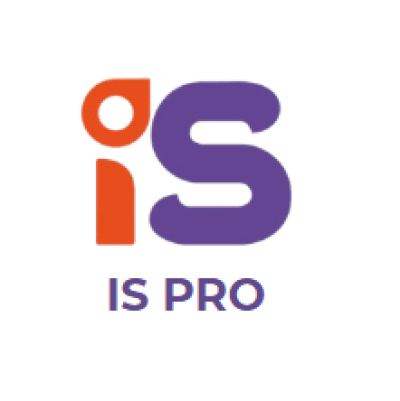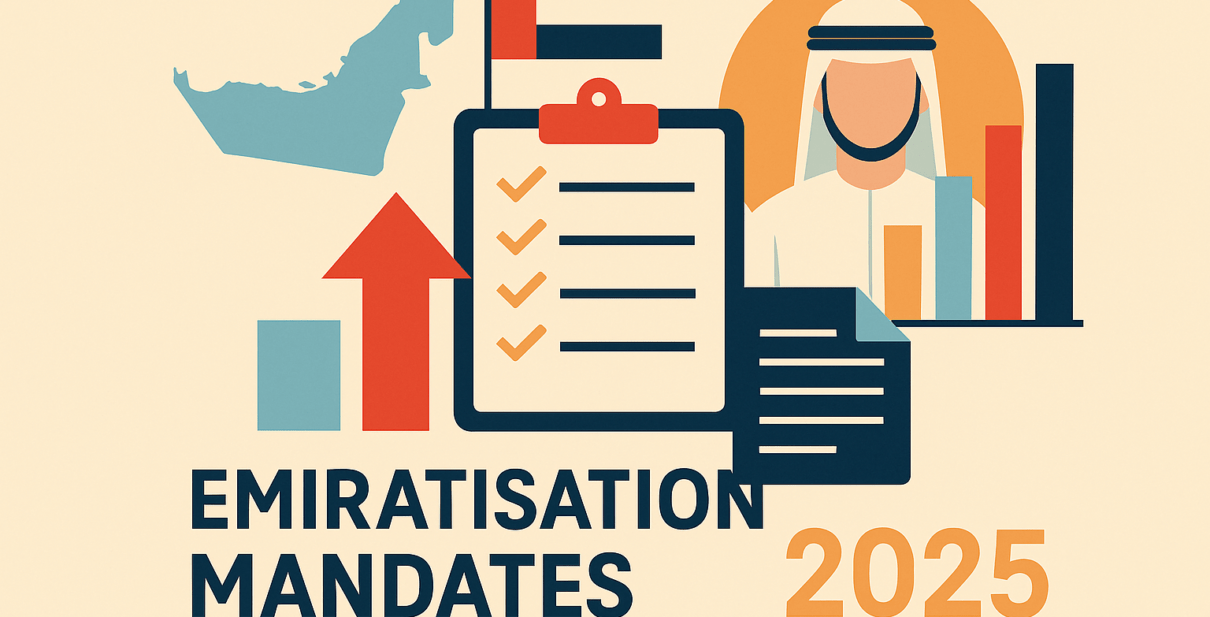Breaking Down the Latest Emiratisation Mandates in 2025
The UAE’s Emiratisation strategy in 2025 has moved beyond symbolic initiatives. Today, it involves strict compliance deadlines, escalating penalties, and clear sector-specific targets. The Ministry of Human Resources and Emiratisation (MoHRE) is actively monitoring implementation, especially in key sectors like banking, insurance, telecom, and energy.
This blog breaks down the latest mandates, yearly expectations, sectoral differences, and compliance timelines for both large corporations and SMEs operating in the UAE.
Yearly Emiratisation Hiring Targets (As of 2025)
1. Large Private Sector Companies (50+ employees)
- Annual Increase Requirement: 2% yearly (1% every 6 months)
- Goal by End of 2026: 10% Emirati representation
- July 1, 2025, Deadline: Completion of the mid-year 1% increase
Non-compliance leads to AED 6,000/month per missing hire, increasing by AED 1,000/year.
Sector-Wise Emiratisation Expectations
Certain high-impact industries have enhanced targets, often beyond the base 2% requirement.
Banking & Finance
- Target: 45%–60% Emirati workforce by 2030
- Current Mandate: Significantly higher than 2%; monitored quarterly
- Action: Active recruitment through Nafis + partnerships with universities
Insurance
- Target: 50% by 2030
- Mandate: Monthly reporting and internal KPIs are expected
- Support: Training programs supported by NAFIS and the Emirates Institute
Telecommunications & Energy
- Higher technical skill requirements
- Hybrid workforce encouraged (Emirati leadership + expat support)
- Internal succession planning is strongly recommended
Key Compliance Deadlines (2025 Onward)
| Date | Requirement |
| Jan 1, 2025 | New year target calculation starts |
| Mar 31, 2025 | Sectoral review of insurance & telecom firms |
| July 1, 2025 | 1% increase for H1 2025 due to large companies |
| Dec 31, 2025 | 2 Emiratis must be hired in SMEs |
| Jan 1, 2026 | Fines increase for ongoing non-compliance |
What Counts Toward Emiratisation Quota?
- Full-time, part-time, and temporary contracts, as long as:
The employee is Emirati
Registered with the General Pension and Social Security Authority (GPSSA)
Has a valid work permit - Grace Period: Two months allowed to replace a resigned Emirati without incurring fines
How Employers Can Stay Compliant
- Conduct a Workforce Audit
Analyze current staffing, Emirati percentage, and forecast growth - Leverage the Nafis Platform
Register vacancies, access pre-vetted Emirati candidates - Build Emirati-Specific Training Programs
In collaboration with local institutes or via third-party providers - Prepare Documentation for MoHRE
Track hiring dates, contracts, pension data, and training records - Seek Inclusion in the Emiratisation Partners Club
This MoHRE initiative offers priority access to tenders and incentives
Common Challenges & Solutions
| Challenge | Suggested Action |
| Limited Emirati applicants in niche roles | Partner with universities, offer internships |
| Cultural integration | Provide mentorship and leadership coaching |
| High turnover | Improve employee experience, career growth |
| Administrative burden | Appoint a dedicated Emiratisation liaison |
Conclusion
The UAE’s 2025 Emiratisation framework is goal-driven, enforceable, and rewarding for companies that comply. With regular audits and penalties in place, proactive hiring and strategic planning are essential. By aligning with government expectations, businesses not only avoid fines but also gain access to national programs, build stronger cultural ties, and strengthen their brand image in the UAE.


